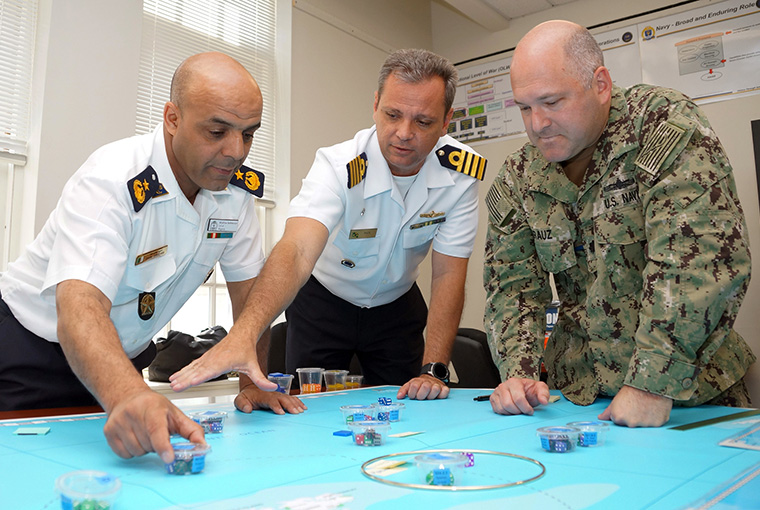U.S. Naval War College Holds War-Gaming Course for International Partners

NEWPORT, R.I. -- U.S. Naval War College held its second International Wargaming Introductory Course in June, offering an introduction for visiting foreign officers on how an American military war game is built.
The two-week course, from June 17 to 28, grew out of the college's War Gaming Department, which offers similar introductory courses for U.S. personnel. This month's course included officers from Argentina, Algeria, Brazil, Chile and Japan.
“They learned how to plan, design and execute a war game,” said Shawn Burns, Naval War College professor and course director.
“One of the missions of the Naval War College is to strengthen maritime partnerships. We are doing that because all of these students will know each other, but they will also know us and we will be a resource for them when they go back to their home countries,” Burns said.
War-gaming is a time-honored tradition at the Naval War College, going back to the institution’s roots in the late 1880s. The college’s war-gaming work is credited with shaping the naval strategy that led the United States to victory in the Pacific during World War II.
Other nations also value war-gaming techniques as a way to anticipate how naval maneuvers might play out in real life.
“I think we are not far from what you do here. We have the similar ideas and similar procedures,” said Capt. Rodrigo Pace, head of the war-gaming center at Escola de Guerra Naval, Brazil’s naval war college in Rio de Janeiro. Pace traveled to Newport for this month's course.
“But the process here is more detailed. So, we can improve our process with something more step-by-step,” he said.
This week, the officers worked on a scenario based on the 1982 Falklands War between Britain and Argentina.
Those on the “British” team moved colored pieces representing aircraft and ships around a tabletop covered in maps. The “Argentina” team did the same on the other side of the room. The two teams were separated from each other by a partition.
Organizers said the players gain valuable insight into how the pieces interact on a large scale.
Burns said he and the rest of the War Gaming Department intend to continue the introductory course and add an advanced course for international officers in the future.
